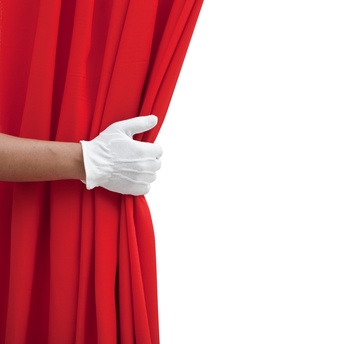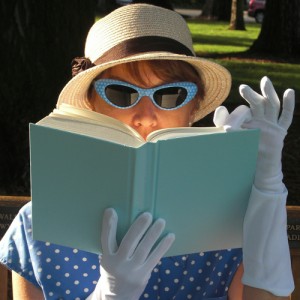Does this ever happen to you?
You’re trying on a pair of pants, and the zipper gets stuck. It takes five saleswomen to get you out of the pants. And that’s not the end of it. You have to pretend to want to buy them, but everyone knows you’re too fat, or the pants too small. Whatever. It’s not a match made in heaven. So you browse the racks, and the salespeople watch. You make a selection. A pair of striped socks, and you pay for them. But when you walk out the door, the alarm goes off.
And that’s not all.
The security guy eating a hotdog at a wrought iron table outside the store is your nemesis from high school days, the boy who flipped burgers at the joint where you worked the counter. You’d turned him down when he asked you to the movies, so he wrote stuff about you on the wall of the employees’ bathroom, at least you think it was him. Fuck you Holcomb. Stuff like that. Not even a comma between “you” and “Holcomb.” And there he is, stuffing his face with a hot dog, when he hears the alarm go off. He tries swaggering over like a real cop, but he doesn’t have the coordination; he swings one side of his body and then the other until he’s right up in your face. You see him remembering. Or trying to. There’s something about you he recognizes, but he can’t place it.
Does that ever happen to you?
Yeah, me neither.
Only in the fictional world in my mind.
This is how a writer discovers characters.
* * *
At the library, I look around.
A gaunt man wearing glasses, baseball cap, and blue windbreaker types secret messages into the computer, the cords of his neck prominent. A spy?
A man with a rusty goatee and toupee scouts around, his eyes flicking from table to chair to corner to shelf. He spins on his heel and dashes off. A detective?
A woman makes a bee-line for the newspaper rack. Her oversized shoulder bag, hanging diagonally across her body, bumps her thighs. Something heavy in that bag. A severed head?
This is intrigue at its highest. The stuff of an anxious mind. Or a writer spinning plot ideas.
* * *
Crossing the street, I find a dollar bill. And another. And a five. What luck! Nearby, someone’s iPhone. Rats. The money has an owner. It’s an expensive phone, with a red leather case that opens like a book. Tucked inside, the owner’s driver’s license.
A brunette, she smiles with perfect teeth.
I’m a hundred yards from the police department. It’s Saturday, but the lobby’s open. The receptionist behind the bullet-proof window jots down my name and number. I try to slide the phone and money under the glass, but she stops me.
“I’ll send someone out,” she says.
A compact guy in uniform swings through the door, shakes my hand. He opens the leather case and exhales. “Whoa!” he says, inspecting the license. He uses an index finger to scroll through messages on the iPhone. “Looks like her husband is trying to reach her.”
“I hope you don’t think I stole anything,” I say. “The money’s all there.”
He laughs, but shoots a look at the receptionist.
She nods, her eyes cutting to me. “I have her name and number.”
He gives a thumbs-up.
Later, I feel funny about the whole thing. I play what if games in my head.
What if the cop notifies the husband? What if the husband is abusive, and the woman is on the run, in hiding? Now he knows where to hunt her down. What if the woman is already dead, and someone finds her body in a dumpster? My fingerprints are all over that phone. They’ve got my number. Me, a Good Samaritan, suddenly a prime suspect in a murder case.
This is how a writer mines for story ideas.


